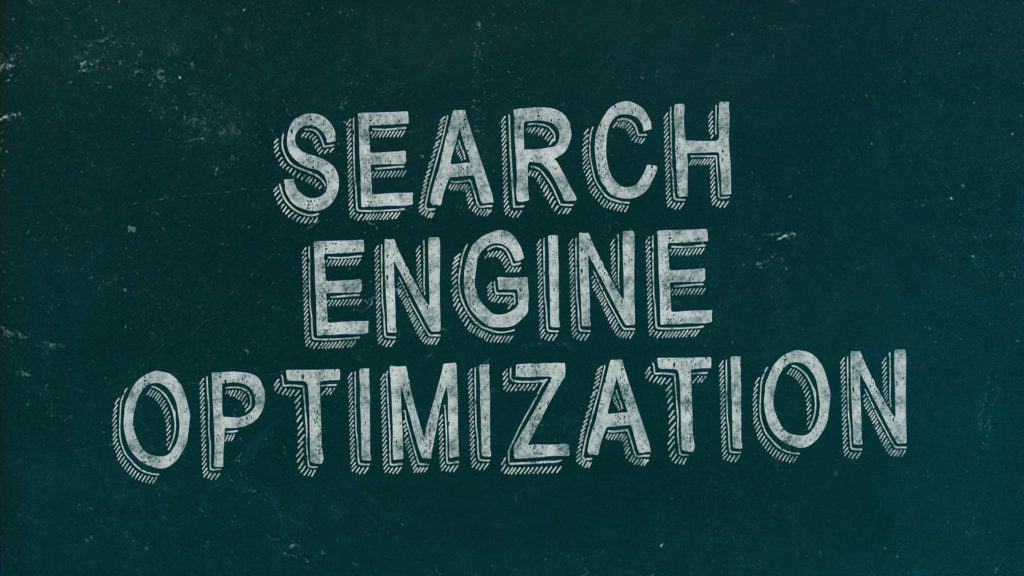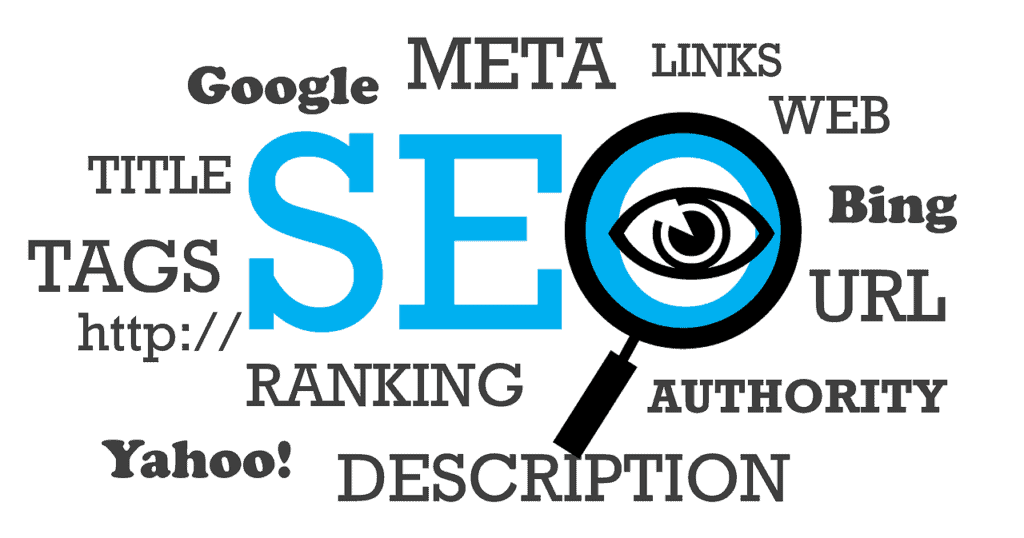Hotel SEO is a fantastic way to create a long-term online marketing strategy for hotels and many other types of businesses. With some patience and persistence, using SEO can pay off well, because you don’t need to continually pay for ads. The fact that most of the hotel bookings begin from a search engine means that what people see on your website is how they gain an understanding of your brand and then decide whether or not they will make a booking. When you combine your hotel SEO strategy with content that engages your customers, that is a fantastic way to ensure success and achieve hefty revenue increases.

Table of Contents
What Is SEO Online Marketing?
SEO stands for search engine optimization and involves the process of using specific keywords throughout a text, the URL, and meta data so that a user is more likely to visit a certain page due to it being shown in search results.
In simple terms, every time you type something into a search engine like Google, it uses an algorithm to connect what you typed to what results for websites it shows. The results that are organic (unpaid) are shown because the text on that page contains similar or exact terms that the user searched for, content relevant to that topic, or the website has a high authority (a highly credible source).
SEO vs PPC
The difference between SEO and PPC (pay per click) advertising is that SEO uses organic results, i.e. the website owner doesn’t pay for their website to be shown in search results. PPC however does involve paid ads. This process also involves using keywords to match users’ search terms, but is a continually paid process, often using the tool Google Ads.

How To Improve Site Ranking In Google Search – Basic Hotel SEO Elements
Doing SEO with complete accuracy does take some work and there are multiple important technical elements to keep in mind. Here is a list of these elements, including their descriptions for how they function.
On page Hotel SEO
First let’s start with on page SEO, as that is the most familiar form. On page SEO means the elements used in the text on your website which are optimized.
Keywords
Keywords are of course the first thing to consider when doing on page SEO. Typically it’s a good idea to use phrases that are two to three words long. The idea is to use a keyword with a high enough search volume (amount of times users search that phrase per month) so that many people use it, but also unique enough to create a niche, i.e. a low keyword difficulty (how hard it is to rank for that keyword).
You might be tempted to use the most popular keywords. However, this strategy runs into problems when you have major competitors using the same keywords. They will simply outrank you because of their strength and you will never manage to make the first page of results. The first page is said to gain between 71 and 92% of traffic clicks for all Google searches. Therefore, it should always be the goal to rank on the first page.
There are also different types of keywords that are important to mention:
This is the most important keyword you will use and center your content around. Typically it should appear in 1-2% of the text (especially the headings), in the first 100 words, in the title of the page, the link and the meta data (described below).
Focus Keyword
If your website is on WordPress, the best hotel SEO tools is Yoast, a plug in that will give feedback on how well your text is optimized.
Secondary Keywords
It’s a good idea to also include some secondary keywords in your text in addition to the focus keyword. These are keywords that are less important, but may still help to gain higher organic results for that text. They are often used in subheadings and also help break up the text for readability.
Long Tail Keywords
Long tail keywords are keywords that use your focus keyword but in a longer phrase so that you can reach your niche audience more easily. For example, let’s say your focus keyword is “hotel in Berlin”, maybe you can use a long tail keyword with “hotels in Berlin with breakfast included”. This gives you the opportunity to rank for both keywords.
Content
Length
In general, SEO content should be 1000 words at minimum. The more content you have, the higher the chance to rank for the content. However, it also needs to be balanced with readability. If it’s too long, readers will also become annoyed, which will hurt your follower base. Break up the text with headings and sections, use short paragraphs, and make important information easy for readers to find quickly.
Headings
The headings in a text are one of the top most important SEO elements. The highest level is the H1, or the title of the page. You only should have one H1. Next is H2 and then H3, and so on. H2s should contain the focus keyword and a mix of secondary keywords. Use headings to break up the text for organization and readability.
URL
The focus keyword should always be listed in the URL of your page and should be short. Using again the focus keyword of “hotel in Berlin”, an example would be:
xyzhotel.com/blog/the-top-hotel-in-berlin-for-tourists
Internal & External Links
Optimized content also includes many relevant internal and external links. This helps search engines know that the text is relevant for the topic and has more authority (described below) to rank.
Internal
Internal links are links that go from one page on your website to another page. You can use these links to create click paths for customers to go from readers to conversions.
External
External links are links that go from one page on your website to another website. These links are used to cite sources, improve your authority and may also be used for affiliate marketing (described below).
Photo Tags
Photo tags or “alt text” refers to the title you give photos when you upload them onto a page. It’s a great tactic to describe them using your focus keyword to increase the chance of ranking.
Meta Data
Meta data comes in two parts. You know when you type something into Google and then each result has a bigger title, a link and a description below that helps you know what it is? This is meta data and is a super important factor for SEO.
Meta Title
The meta title is the name of the page shown on search results. It should include at minimum the name of the page (including the focus keyword) and maybe your company name or another describer. It depends on how many characters you have left after the page name, but it should contain no more than 75 characters max.
Meta Description
The meta description is similar to the title in that it should contain your focus keyword and company name, but should also include a CTA (call to action), or a reason for a reader to click on the page. It should contain 160 characters max.
Authority
One way that search engines like Google decide which results to show is authority, or you can say the “maturity” and “popularity” of a website. Factors such as age of the website, amount of website traffic and amount of content affect authority. It uses values from 1-100 and is broken down into two categories. A great way to check this is using a free tool called the Moz Bar.
DA
DA, or Domain Authority, refers to the authority of your entire domain, i.e. xyzhotel.com.
PA
PA, or Page Authority, gives a rank for a particular page, for example, xyzhotel.com/suites
Page Speed
One last important factor is page speed. In general, Google especially tends to rank sites with faster page speeds higher. Semrush has a helpful breakdown of page speeds here.
Off page Hotel SEO
Off page SEO will also be described here because it’s highly relevant for hotel SEO. Because many hotels have a local focus, using off page SEO can be a great way to increase organic search rankings.
Backlinks, Guest Posts, and Affiliate Marketing
Guest posting involves the process of posting your content on another person’s website with a backlink to your hotel. This could be for example, a travel blogger writes about their stay in your hotel on their blog and then adds a backlink to your hotel. This makes it easy for their readers to come to your website and make a booking.
When this is done as a part of affiliate marketing (using each other’s links to increase traffic) this process may require payment.

How To Create Your Hotel SEO Strategy?
Step 1: Get To Know Your Audience
No matter whether you’re starting from scratch or have already begun to utilize SEO, the most important step is to understand your audience. Write what they would like to read. Use the words or terms they use. Make it engaging through the appropriate tone and types of content you use.
Step 2: Do Keyword Research
Once you have a better understanding of your customer, the keyword research will become easier. Think: if you were them, what search terms would you use to find the type of service your hotel offers? Make a short list of variations and then use a keyword research tool to check whether it makes sense to use them or not. Ubersuggest is the best free tool for this.
Step 3: Create Suitable Content Over Long Term Using Proper Hotel SEO Techniques
SEO is a part of a long term gain. You can’t expect results overnight with SEO. Even after you have included content that uses all of the SEO elements listed above, you need to keep doing so over time. Proper SEO can sometimes take several months at minimum to experience real results. You also need to keep posting need content at least twice per month to make sure everything is up to date.
Monitor the results and produce more of the content that is successful.
Step 4: Promote The Content On Suitable Platforms
Once you have good content, you need to promote it to drive traffic, otherwise it will simply sit there. For SEO, great ways to promote both old and new content are:
- Social media (paid boosted posts or organic posts)
- As a part of a long term blog article strategy
- Email marketing
- Guest posts
- Outreach or other PR
- Other sections on your website that already receive good amounts of traffic (landing pages, home page, blog)

Tips For Doing SEO For Hotels
Here we’ve gathered some tips especially relevant when doing SEO for hotels.
Utilize Local SEO Benefits
A whopping 97% of customers use search engines to find local information. Furthermore, 75% of searchers visit a local store or company’s premises within 24 hours of the search. This makes using local SEO an absolute must for hotels.
Hotel SEO Keywords For Local SEO
One of the best ways to do take advantage of local SEO benefits is to use local keywords. For example, if you are a hotel located in Berlin, Germany you can focus on keywords that include Berlin to make sure that people find you in that location.
The best hotel SEO tool hands down is Ubersuggest. You can do all sorts of keyword research there at absolutely no cost. You can also compare competitors, and find inspiration for content ideas.
Make Listings On Popular Hotel Search Engines And Directories
A great way to increase your presence for off page and local SEO is to make listings in the major hotel search engines so that you are easier to find. You can also easily accumulate reviews this way so that you are ranked higher, particularly on Google, Booking.com and Trip Advisor.
Some of the major ones include:
- Booking.com
- Priceline
- Kayak
- Hotels.com
- Expedia
- Trip Advisor
- Trivago
- Airbnb
- Google My Business (Google search)
Use Visuals To Your Advantage
Last but not least, as mentioned above, including photos in content is a fantastic way to increase your organic search results. Particularly for the hotel and travel industry, adding more photos is expected from your audience. This means you can use this for both local SEO benefits, as well as improve the visual appearance of your content.

Have more questions? Be sure to join our Hoteliers Elite Facebook group, we will be happy to help you!
Thank you for the good key highlights .. I will definitely use for my hotel clients